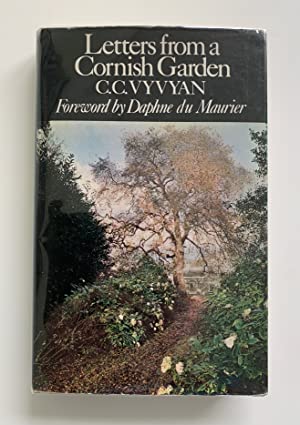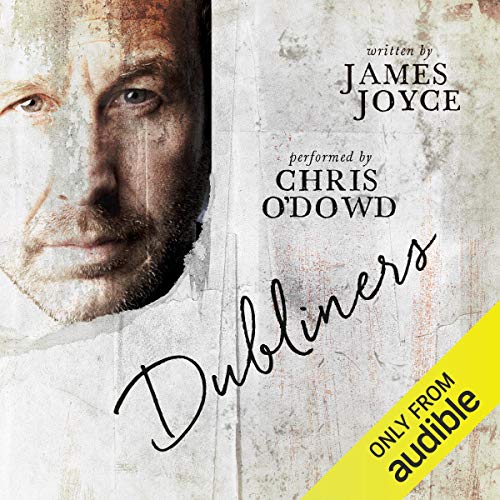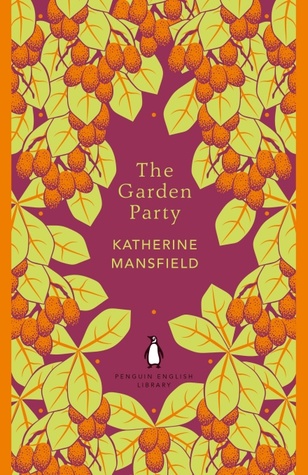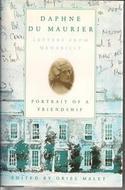Will July be the second consecutive month in which I have my chain listed and partly written and then the end of the month arrives before it gets any further? I hope not. I did manage an alternative post in June so it wasn’t an entirely barren month on the blogging front. And there’s plenty of July left. Let’s see what happens.
Thanks as usual to Kate, at booksaremyfavouriteand best, who does all the organising. The background can be found here. I’m always astonished that no matter how varied the chains and with the vast numbers of books to choose from, there is invariably at least one book from mine which appears in someone else’s. This month I share a title with Kate herself, albeit one that we arrived at by very different routes.
For July, Kate has chosen for our starter a book which was everywhere fifteen years ago: Eats, Shoots and Leaves by Lynne Truss. I remember it vividly and remember equally well the circumstances of my life at that time. (And immediately comes the paradox in which that period seems like yesterday and yet so long ago.) Perhaps because my personal memories are so strong from those years I instantly connect this book to the person who gave it to me. A self-described pedant, I quickly realised from him how little I knew about grammar and equally quickly found myself fascinated by the rules and the art of a well-constructed sentence. (An art I’m still struggling to master.)

Thus, despite the many directions that lead from this book, my first link connects through friendship and leads me to another book given to me by a dear friend some ten years later. From a book which was ubiquitous to a book which few will have encountered, I cherish Letters from a Cornish Garden by C C Vyvyan (1972) because of the thoughtfulness of the giver. C C Vyvyan was Australian born with a Cornish mother and she herself married a Cornish baronet. On his death she inherited his estate and ran it for over forty years. She was well-travelled and wrote a number of books on gardening and on Cornwall. She had an enduring friendship with Daphne du Maurier who wrote the forward to this collection and was of course a literary craftswoman herself.
Letters from a Cornish Garden was the last book by C C Vyvyan published in her lifetime. Chloe Marr (1946) by A A Milne is the last novel by another author, also with a brace of matching initials to open his name. Chloe is described as ‘irresistibly beautiful’ and her life ‘a whirlwind of dinners, holidays, romantic trysts and parties’. But no one really knows who she is. I picked this book up from a charity shop, drawn by the evocative 1920s illustration on the cover. It’s a short leap to the next link: F Scot Fitzgerald’s The Great Gatsby (1925). The double consonants appear in the title this time. The plot is set firmly in the 1920s with its fill of parties and glamour and bright young things. It also features a protagonist who is not what he seems.
From one modernist writer to another – and from GG to JJ – my next link is Dubliners (1914) by James Joyce. I expected to like The Great Gatsby and didn’t. I didn’t expect to like Dubliners and I did. (Not enough to attempt anything more from Joyce. Not yet at least.) Dubliners is a collection of 15 short stories of varying length depicting middle-class life in the city at that time. I enjoyed my own reading of it and I’m looking forward to the audible version read by Chris O’Dowd which can only enhance the experience.
Fitzgerald was a great admirer of Joyce but afraid to approach him. Sylvia Beach of the legendary Parisian bookshop, Shakespeare & Co, arranged a meeting which is described in an article from Lit Hub that arrived via my inbox at precisely the right moment. Wouldn’t it be marvellous to have been a fly on the wall at that time! Both writers have a hand in creating the next link which takes us to another modernist writer about whom I have no misgivings.
A handwritten list survives from Fitzgerald in which he noted the essential books he believed everyone should read. My next link is drawn from that list (and finally moves us away from double initials) to a writer who epitomises the art of the short story for me.
The Garden Party by Katherine Mansfield is an exquisite short story which I remember reading before I had ever heard of her and at a time when I was far from a fan of the form. That story has remained with me for years. I’ve since read others of hers and found more favourites but this one will always have a special place. One of its strengths – alongside the beautiful and sharply-crafted sentences – is its depiction of a time and a place, very much like Joyce’s collection in Dubliners.
And so to the final link. Katherine Mansfield was much admired by Daphne du Maurier who made mention of her in her letters to another of her long-standing friends, Oriel Malet, with whom she corresponded for many years. Oriel Malet was the pen name of Lady Auriel Rosemary Malet Vaughan. Daphne was twenty years her senior and a well-established writer when they met in the fifties. Auriel, though critically regarded, was never well-known. Letters from Menabilly: Portrait of a Friendship shares Daphne’s letters to Auriel, interleaved with pieces by the younger writer who for a time lived a bohemian life in France and must surely have visited Shakespeare & Co. The book was published in August 2014, just a matter of months before Auriel’s death: another last last published work.
As a child Daphne had unknowingly lived opposite Katherine Mansfield. She wrote of her admiration for Mansfield in her letters to Auriel and which I learned about through the brilliant something rhymed blog which has since become a book in its own right. I wonder if Daphne ever knew that in 1918 Katherine spent time in Looe – not so far from Ferryside where Daphne’s love for Cornwall was cemented, and where in 1931 she wrote her first novel.
Friendships and admirations, Cornwall, letters, gardens, short stories: all links in the chain this month (along with double initials). But mostly I am thinking of the writers in this chain. I’d like to think that none of them would have had need of Eats, Shoots and Leaves, though I imagine they would certainly have opinions on it. I’d also like to think that Lynne Truss would in turn, approve of each of them.







I enjoyed reading this, Sandra. It was a breath of fresh air after a week of frowning at emails! You weave a lovely narrative between your choices. ‘Letters from a Cornish Garden’ sounds wonderful. Like you, I didn’t like ‘The Great Gatsby’. Like you, I was surprised to like ‘Dubliners’ and have read it twice. I also read and enjoyed Joyce’s ‘Portrait of the Artist as a Young Man’, should you ever be tempted to try something else. I’ve never read any Katherine Mansfield, but might well look her out.
LikeLiked by 3 people
Thanks Jan 😊 And thanks for the encouragement re Joyce. Perhaps one day! I hope you have a weekend free of emails ahead of you. Enjoy the sunshine!
LikeLiked by 2 people
Oh, I do like these linked book posts which turn out to be chatty essays rather than mere lists! Informative, witty, insightful—what’s not to like about your post? 🙂 More, please!
LikeLiked by 5 people
Ha ha, thanks Chris! 😄 If I’m going to post, might as well make it as wordy as possible! 😂
LikeLiked by 1 person
What a fabulous link! I have The Garden Party to read this summer and love the connection to Daphne du Maurier and Looe and to Dubliners which I think is brilliant, lots of the characters turn up again in Ulysses (when you’re ready!)
LikeLiked by 3 people
I think you will enjoy The Garden Party, Jane, and while you’re reading that I shall be reading ‘Summer’ thanks to your recent review 😊 And thank you for the encouragement to read more Joyce. Maybe one day!
LikeLiked by 1 person
I do hope you enjoy Summer Sandra!
LikeLiked by 1 person
Fascinating connections along the way – Fitzgerald and Joyce, Du Maurier and Katherine Mansfield. I would love to see Looe through Mansfield’s eyes.
LikeLiked by 4 people
She was in Looe for the spring and summer of 1918 in the hope it might benefit her health. I hope to learn more about her time in the town. I’m sure there’ll be a post on it eventually but I agree that to have seen it through her eyes would be wonderful 😊
LikeLiked by 3 people
Definitely something to look forward to.
LikeLiked by 1 person
What an interesting chain! I have an Oriel Malet lurking somewhere I must dig out!!
LikeLiked by 3 people
Hopefully you’ll tell us your thoughts on it if you find it, Kaggsy!
LikeLiked by 1 person
Oh, I will – you can be sure of that!! 😀
LikeLiked by 1 person
The stories about why your books links are lovely, Sandra, I really enjoyed them. I must read Eats, Shoots and Leaves for myself, but am also now hoping to find something by AA Milne to as I’ve only read the Winnie-the-Pooh stories and some poetry for children so far.
LikeLiked by 3 people
Thanks Rose 😊 Milne wrote plays, screenplays, poetry, novels of various genres and articles yet we remember him for Winnie-the-Pooh. I know his son resented those books and Milne was frustrated that they overshadowed all his other work. That said, I still love Winnie and friends!
LikeLiked by 1 person
Better late than never! And you grabbed me with that Chloe Marr book, as well as The Garden Party (which I see is available as part of a collection of short stories)!
LikeLiked by 1 person
Yes, The Garden Party is part of a collection but I initially read it as a tiny standalone book that intrigued me at a boot fair. (Literally – just a few inches square.) Hence reading with no context or history at all. Everything I’ve read from her since – which is not all her work by a long way – is exquisitely written. So if you jump into the whole collection I doubt you’d be disappointed. The stories are generally slow though, capturing inner moments rather than outer narratives. Not necessarily a breezy beach read!
LikeLiked by 2 people
Oh, well now I really DO need to get that collection. I love introspective stories (I’m a mountain person, not a beach person)!
LikeLiked by 1 person
In that case, you certainly do need to try her stories!
LikeLiked by 1 person
I like the way you make these links. I enjoyed Eats…., The Dubliners, and The Garden Party; didn’t much like Gatsby.
LikeLiked by 1 person
I’m starting to feel better about not liking Gatsby now I’m coming to realise that I’m not alone, Derrick!
LikeLiked by 2 people
This is FASCINATING! I loved reading it. I haven’t read any? of these yet.
LikeLiked by 1 person
Glad you enjoyed it, Amy 😊 There are so many wonderful books in the world. You have introduced me to several!
LikeLiked by 1 person
Great links – I enjoyed all those double initials! I’ve never read anything by Katherine Mansfield – you make me feel I should rectify that omission! I too enjoyed Dubliners but have no desire to try his other stuff. The only other one I’ve read is Gatsby, which I’m now scared to re-read since Tender is the Night made me hate Fitzgerald with a passion. I’m hoping time will heal the wounds… 😉
LikeLiked by 1 person
Well you would appreciate the double initials, FF! 😄 I love Mansfield’s writing. I think you would appreciate her skill at the very least. Just don’t expect too much to happen in the stories! (Now I’m wondering why I like her work and yet struggle with the Russians 🤔 ) Sounds like I missed one of your marvellous excoriating reviews with TitH. I may have to nip back into the FF archives… 😉
LikeLiked by 1 person
Always great to read your chain posts – this one is a lovely mid-month pick-me-up! I really enjoyed all your imaginative choices for links. I think Lynne Truss would definitely approve!!
LikeLiked by 1 person
Thank you Liz 😍
LikeLiked by 1 person
This is a lovely post. Apart from Eats Shoots and Leaves, I’m ashamed to say I’ve only read – and very much enjoyed – Katherine Mansfield. I need to reacquaint myself with her writing.
LikeLiked by 2 people
Me too!
LikeLiked by 1 person
I hopped on over from Margaret’s post to find your blog and post. Interesting books. I, like you, am still working my sentences. I enjoyed Eats, Shoots and Leaves ad somewhere I have a picture book I used with my middle school class to make writing a bit more fun and interesting for a 13 year old. Have a wonderful week and enjoy summer while it’s here.
LikeLiked by 1 person
How lovely that you’ve popped in, Clay, thank you! The blog is languishing somewhat at present, mostly due to family circumstances but I’m hopeful it will rise again from the ashes. Meanwhile I shall pop over and visit you now!
LikeLike
I really enjoyed reading this, Sandra, and admire the way the writers link together so comfortably.
LikeLiked by 1 person
Thanks Carol, it’s always enjoyable putting these posts together.
LikeLiked by 1 person
Lovely post, Sandra. It never fails to amaze me, how many creative ways people find to connect one book to another. I really ought to read Eats, Shoots and Leaves. Whereas I always excelled in grammar back in school (Danish grammar, that is) I can’t seem to get the hang of it in English.
LikeLiked by 1 person
Given the quality of your English, I don’t think you have anything to worry about, Stargazer 😊 You have got me thinking about the grammatical differences across languages though …. 🤔
LikeLiked by 1 person
I enjoyed reading your post so so much!😀 Once, a friend of mine suggested this book to me, it’s still on my TBR. The post helped me remember my long suppressed desire to read it. Awesome blog you have got, loved it!
LikeLiked by 1 person
You’re very kind, BookWorm, thank you 😊 I hope you get to read the book one day!
LikeLike
Th is certainly a post which rings all the right bells for me Sandra. I love DDM and all her Cornish and literary connections, and I think I’ve read, and probably own copies , of them all. The Helford river, visited in the late 60s was a truly magical place- silent, peaceful, undisturbed and infinitely romantic. I’ve never been back, so the magic remains unspoiled, but have read everything and everybody I can find remotely connected to it. Thanks for the memory.
Eats, shoots and leaves I found invaluable in trying to impress the importance of punctuation when I was teaching 10 year olds. The sentence was pinned up on the wall, in both it’s forms, as a reminder of what a difference a simple mark could make.
Brilliant post. xxx
LikeLiked by 1 person
The Helford River in the sixties must have been marvellous, Pat. A part of Cornwall I’ve still not seen which I shall hopefully address when we’ve emptied out a little after the summer! x
LikeLike